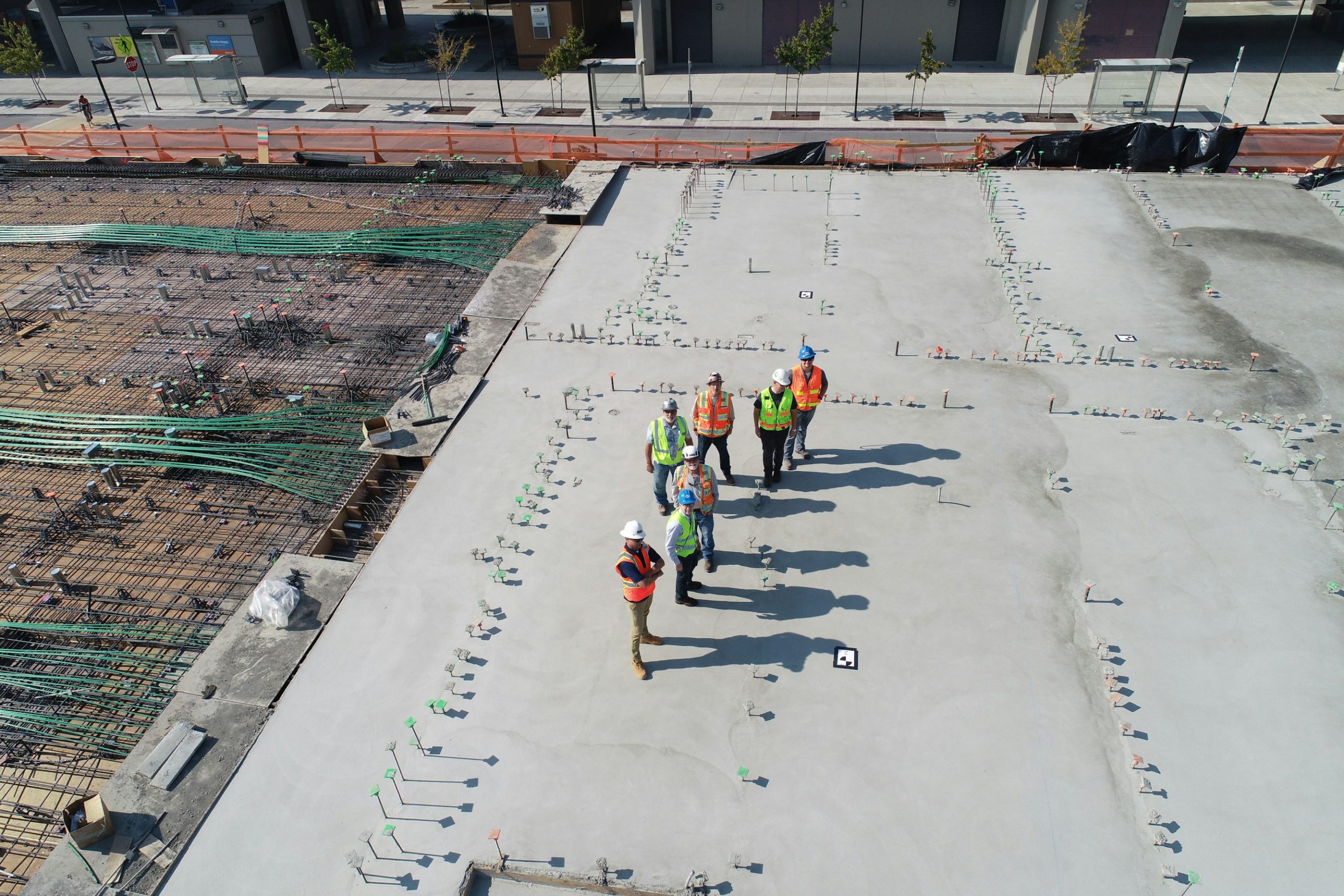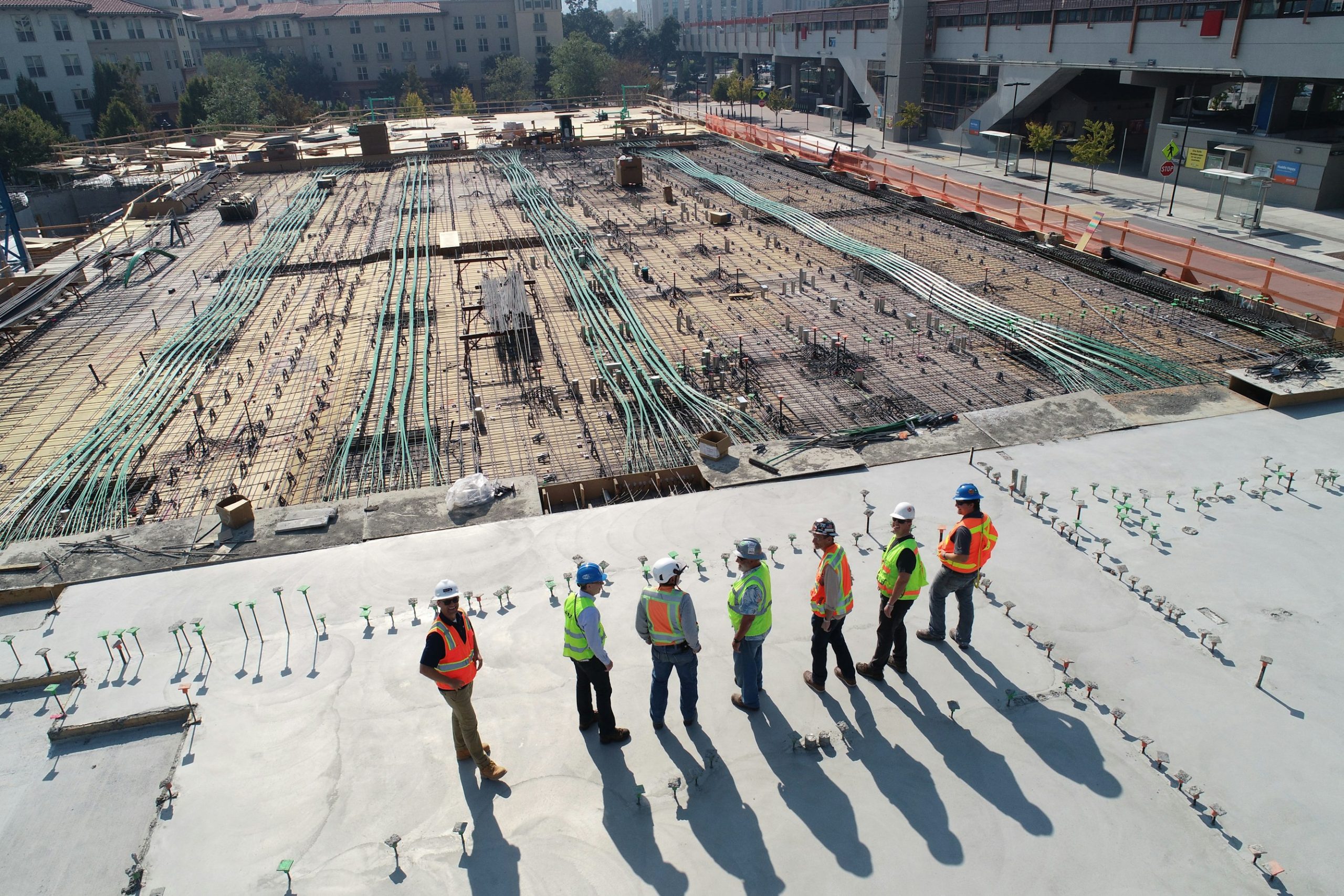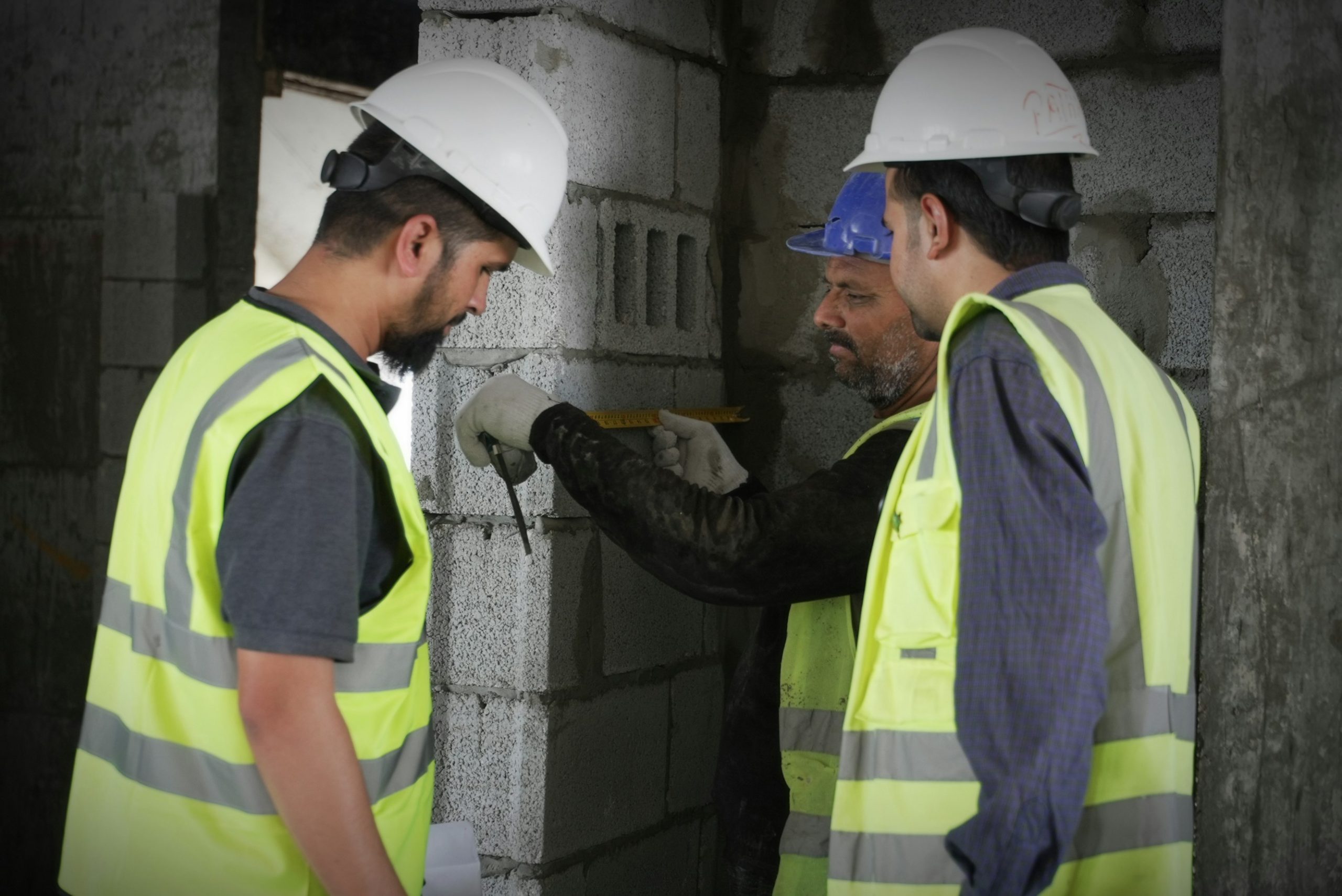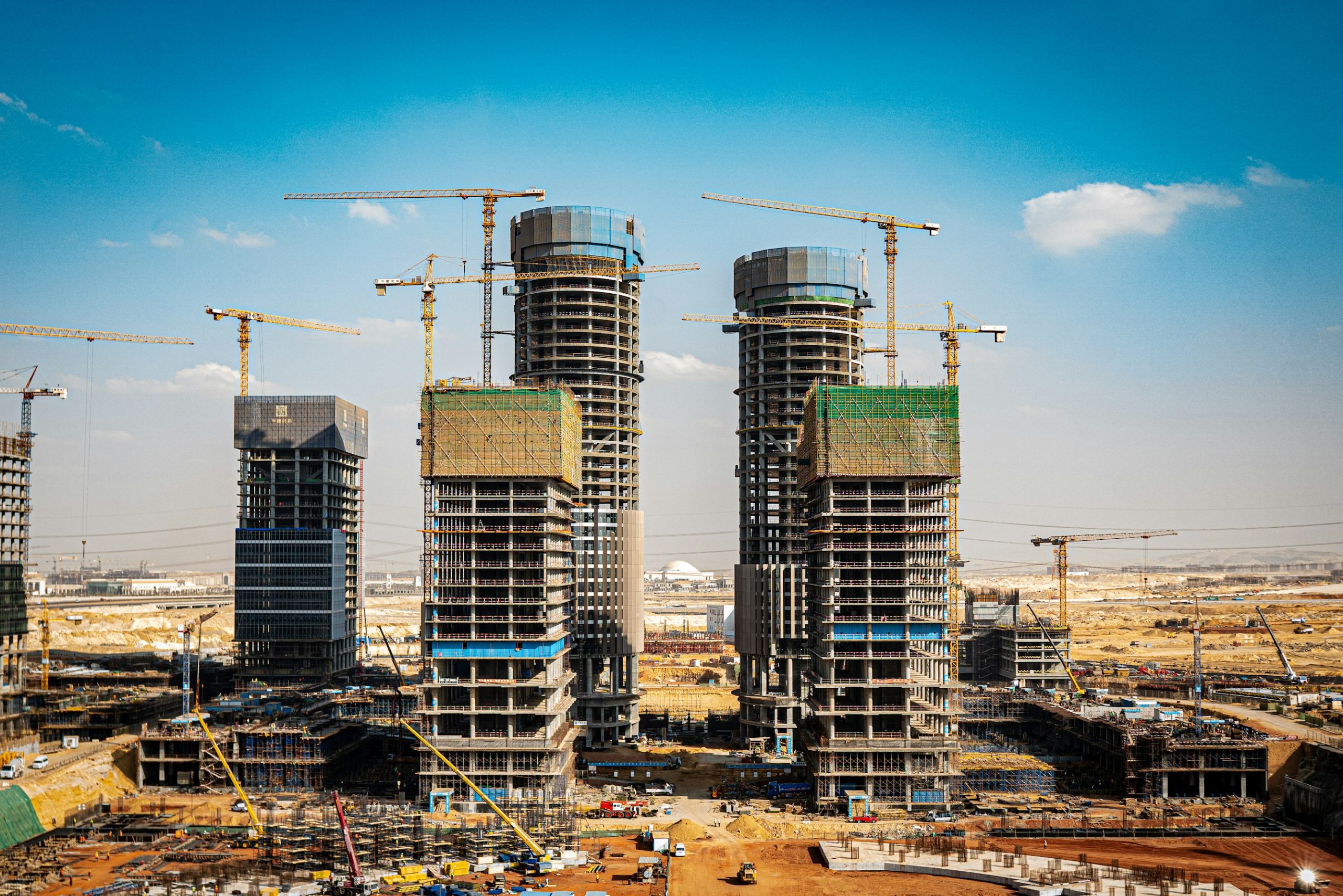Why Construction Needs AI-Powered Progress Monitoring
In today’s fast-paced construction landscape, leveraging AI-powered progress monitoring has become essential for project success. By integrating artificial intelligence into construction processes, companies can significantly enhance their efficiency, accuracy, and safety. This blog post will explore the key benefits of AI in construction, practical use cases, best practices for implementation, and how solutions like Zepth can help streamline operations.
Key Benefits of AI in Construction Progress Monitoring
Enhanced Efficiency and Accuracy
One of the primary advantages of AI-powered progress monitoring is the remarkable improvement in efficiency and accuracy it delivers. Traditional methods of tracking progress frequently involve cumbersome manual processes that are time-consuming and costly, not to mention the susceptibility to human error. In contrast, AI can rapidly process vast amounts of data, paving the way for real-time decision-making which ultimately reduces delays and minimizes costs.
Real-Time Data Collection and Analysis
AI harnesses advanced technologies such as high-definition time-lapse photography, live video streaming, drones, and sensors to gather and analyze data in real-time. This capability enables project managers to monitor on-site activities like machine movements, concrete pouring, and safety compliance, delivering comprehensive insights into project progress effectively and promptly.
Improved Safety
Safety remains a paramount concern in construction, and AI can play a pivotal role in enhancing safety protocols on sites. By analyzing historical safety data alongside real-time monitoring, AI can pinpoint potential safety incidents. For instance, the AI system can detect whether workers are appropriately utilizing required protective equipment, allowing managers to respond immediately, thus reducing accident occurrences and enhancing site safety.
Better Project Planning and Management
The predictive capabilities of AI algorithms are invaluable for effective project planning and management. By analyzing data from previous projects, AI can foresee potential delays, identify risks, and suggest efficient scheduling adjustments. This function can help project managers anticipate bottlenecks and implement proactive measures to ensure projects stay on track while enabling better budgeting and tracking of financial transactions to prevent cost overruns.
Integration with BIM and Digital Tools
AI seamlessly integrates with Building Information Modeling (BIM) tools, revolutionizing how data is transformed into precise models. Utilizing technologies such as LIDAR scanners and point cloud data, this integration improves modeling accuracy and facilitates as-built comparisons with ease.
Use Cases of AI-Powered Progress Monitoring
Automated Site Inspections
AI has the capability to automate on-site inspections by analyzing video footage, 3D models, and reports to identify quality issues and possible flaws before they escalate. This proactive approach helps mitigate costly rework while ensuring compliance with safety standards.
Activity Tracking and Safety Monitoring
AI-driven solutions can effectively track on-site activities, including equipment movement and detecting safety issues. For example, AI can monitor whether concrete is poured under unfavorable weather conditions or if workers adhere to safety protocols by wearing the necessary protective gear.
Aerial Site Surveys and Progress Tracking
Drones equipped with AI are transforming construction site monitoring through aerial surveys that can track equipment, measure volumes, and conduct quality assurance and quality control inspections. The data collected from these flights is often integrated into a single collaborative online platform, fostering efficient project monitoring and management.
Predictive Maintenance
AI-powered predictive maintenance enhances equipment lifecycle management by analyzing sensor data to detect anomalies as they occur. This capability not only extends the lifespan of machinery but also improves site safety and minimizes the risk of project downtimes.
Best Practices for Implementing AI in Construction
Clear Strategic Planning
To achieve optimal results from AI solutions, companies must engage in clear strategic planning with defined goals. This approach ensures that investments in AI technology lead to a favorable ROI and tangible benefits in construction projects.
Integration with Existing Workflows
For AI to yield maximum benefits, it should be integrated smoothly into current workflows and tools. This involves aligning AI with BIM, project management software, and other digital construction tools to optimize project management processes effectively.
Training and Collaboration
Encouraging collaboration between human efforts and AI systems is paramount to success. It is equally important that personnel are trained to efficiently work with AI tools while ensuring the ethical application of AI to inform strategic decision-making.
Emerging Innovations and Future Trends
Autonomous Machinery
Looking ahead, the use of autonomous machinery such as AI-driven robots and drones in construction is set to grow. Tasks like bricklaying, site surveying, and material transportation could soon be carried out more efficiently, which could significantly enhance labor productivity and reduce project timelines.
Advanced Visualization Tools
As AI technology progresses, the combination of AI with virtual reality (VR) and 3D modeling will further bolster project planning and stakeholder communication. These advanced visualization tools enable immersive experiences that can help identify potential challenges early on, ensuring all parties are aligned on expectations.
How Zepth Can Help
Zepth offers a suite of advanced construction management solutions that seamlessly incorporate AI-powered progress monitoring into construction projects. Here’s how Zepth can help:
- Real-Time Data Integration: Zepth’s platform integrates real-time data from various sources, including drones, sensors, and other AI-powered tools, providing comprehensive insights into projects.
- Automated Reporting: Utilizing Zepth’s automated reporting capabilities, users can generate detailed progress reports on project metrics, safety, and other critical aspects effortlessly.
- Predictive Analytics: Zepth’s predictive analytics features enable early forecasting of potential delays and risks while optimizing overall project schedules with AI support.
- Collaboration Tools: Zepth’s collaborative environment ensures that all stakeholders have access to shared data and insights, promoting enhanced communication and informed decision-making.
By leveraging Zepth’s innovative solutions, construction companies can streamline workflows, boost safety measures, and greatly improve project efficiency. For more details on how Zepth can benefit your construction projects, visit our Zepth Construction Management Solutions.
In conclusion, AI-powered progress monitoring is increasingly vital for modern construction practices due to its significant contributions to efficiency, accuracy, and safety. As the industry embraces advanced technologies, the integration of AI with existing workflows and resources will be essential for harnessing these advancements and maintaining a competitive edge.




